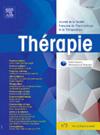成瘾警戒数据对法国医用大麻实验的贡献。
IF 1.8
4区 医学
Q3 PHARMACOLOGY & PHARMACY
引用次数: 0
摘要
在法国,大麻是使用最广泛的非法精神活性物质。最近,大麻二酚(CBD)产品出现了一个新市场,被称为 "轻大麻 "或 "健康大麻"。与此同时,2021 年 3 月 26 日,针对特定适应症的医用大麻实验开始进行。大麻的一些临床效果已被用于医疗目的;然而,不良事件(AEs)抵消了这些效果。关于非医用大麻使用相关风险的成瘾警戒数据和国际文献有助于为使用医用大麻时有并发症风险的患者(如患有精神障碍、严重心血管、肾脏或肝脏疾病的患者)制定排除标准。这也有助于及早发现不良反应。大麻类药物由不同浓度的大麻二酚(CBD)和/或δ-9-四氢大麻酚(THC)组成。我们旨在介绍有关大麻相关报告的成瘾警戒数据对法国正在进行的大麻医疗用途实验的贡献,以预测接受治疗的患者可能出现的药物不良反应。在参加法国实验的 3164 名患者中,有 1186 人至少出现过一次 AE。在关于非医用大麻和 CBD 的成瘾警戒调查中报告的一些不良反应在医用大麻实验中也被观察到,如心血管不良反应(心肌梗塞、中风、短暂性脑缺血发作)、精神不良反应(自杀念头和企图、抑郁)、癫痫恶化、认知障碍和/或镇静障碍。鉴于大麻药物的潜在药物依赖性,临床医生似乎有必要收集患者的成瘾史(过去或现在),特别是使用非医用大麻(非法)和非医用 CBD 的情况,以预防和及早发现任何滥用风险。2024 年《社会保障融资法》通过并定义了医用大麻的普遍使用。患者可根据医生开具的处方,在明确的适应症下使用这些药物。在法国继续提供医用大麻的背景下,成瘾警戒和药物警戒监测至关重要。需要特别监测的不良反应包括神经系统疾病(癫痫加重、认知障碍)、精神障碍(药物使用障碍、自杀行为)、心血管疾病以及任何意外的不良反应。严密的成瘾警戒监测有助于提高参与医用大麻患者临床管理的专业人员的认识。本文章由计算机程序翻译,如有差异,请以英文原文为准。
The contribution of addictovigilance data to the French medical cannabis experimentation
In France, cannabis is the most widely used illicit psychoactive substance. Recently, a new market for cannabidiol (CBD) products has emerged called “cannabis light” or “cannabis well-being”. In parallel, the experimentation of medical cannabis began on March 26, 2021, for specific indications. Some clinical effects of cannabis have been put forward for medical purposes; however, these are counterbalanced by adverse events (AEs). Data from addictovigilance and international literature on the risks associated with non-medical cannabis use have helped establish exclusion criteria for patients at risk of complications when using medical cannabis (such as those with psychotic disorders, severe cardiovascular, renal, or liver conditions). This also enables the early identification of AEs. Cannabis-based medications are composed of cannabidiol (CBD) and/or delta-9-tetrahydrocannabinol (THC) in varying concentrations. We aimed to present the contribution of the addictovigilance data regarding cannabis-related reports to the ongoing French experimentation on cannabis used for medical purposes, to anticipate potential adverse drug reactions in the treated patients. Among the 3164 patients included in the French experimentation, 1186 of them presented at least one AE. Some of the AEs reported in addictovigilance surveys on non-medical cannabis and CBD were observed during the experimentation of medical cannabis such as cardiovascular AEs (myocardial infarction, strokes, transient ischemic attack), psychiatric AEs (suicidal idea and attempt, depression), worsening of epilepsy, cognitive and/or sedative disorders. Given the potential for pharmacodependence of cannabis medications, it seems important for clinicians to gather the addiction history of their patients (past or present), particularly the use of non-medical cannabis (illicit) and non-medical CBD, to prevent and early detect any risk of abuse. The generalization of the use of medical cannabis was adopted and defined in the 2024 Social Security Financing Act. These medications will be accessible to patients by medical prescription for defined indications. Addictovigilance as well as pharmacovigilance monitoring is crucial in this context of continuing to make medical cannabis available in France. Adverse effects of interest will need to be monitored in particular, including neurological disorders (epilepsy exacerbation, cognitive disorders), psychiatric disorders (substance use disorder, suicidal behaviour), and cardiovascular disorders as well as any unexpected AEs. Close addictovigilance monitoring contributes to increasing the awareness of professionals involved in the clinical management of patients treated with medical cannabis.
求助全文
通过发布文献求助,成功后即可免费获取论文全文。
去求助
来源期刊

Therapie
医学-药学
CiteScore
3.50
自引率
7.70%
发文量
132
审稿时长
57 days
期刊介绍:
Thérapie is a peer-reviewed journal devoted to Clinical Pharmacology, Therapeutics, Pharmacokinetics, Pharmacovigilance, Addictovigilance, Social Pharmacology, Pharmacoepidemiology, Pharmacoeconomics and Evidence-Based-Medicine. Thérapie publishes in French or in English original articles, general reviews, letters to the editor reporting original findings, correspondence relating to articles or letters published in the Journal, short articles, editorials on up-to-date topics, Pharmacovigilance or Addictovigilance reports that follow the French "guidelines" concerning good practice in pharmacovigilance publications. The journal also publishes thematic issues on topical subject.
The journal is indexed in the main international data bases and notably in: Biosis Previews/Biological Abstracts, Embase/Excerpta Medica, Medline/Index Medicus, Science Citation Index.
 求助内容:
求助内容: 应助结果提醒方式:
应助结果提醒方式:


